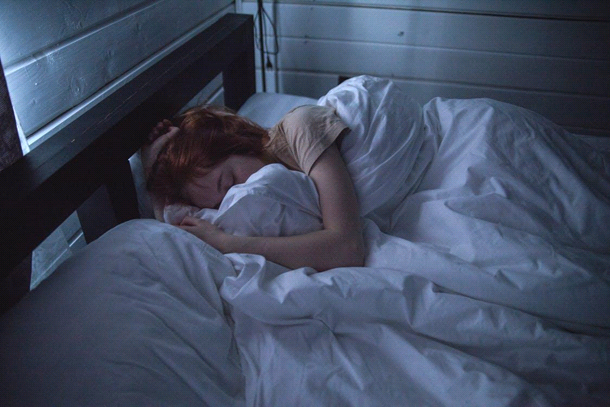Your Dental Health and It’s Connection to Sleep Apnea
Gasping for air when either asleep or awake. It’s not a good sign for your health. One reason people gasp for air can be sleep apnea. Sleep apnea is directly related to so many other health issues, including depression, oral health and anxiety.
“A lot of patients are surprised that I ask about their sleep,” says Martha Cortes, DDS, a dentist in in New York who specializes in sleep apnea. “A dentist is often the earliest diagnostician of sleep disorders.” How is that possible, right?
A study from 2017 in the U.S. National Library of Medicine National Institutes of Health found “sleep disturbances” have become quite frequent along with other risk factors like female, depression, snoring, nocturnal micturition, use of hypnotic drugs and stressful lifestyle.”
When someone is depressed, grieving, anxious, or stressed, they lose interest in basic daily tasks like brushing and flossing teeth. Periodontal problems stem from poor hygiene practices when entering college, for example, without a parent monitoring their frequency.
The study also showed that younger college students and adults are less likely to visit the dentist on a regular basis. Many factors to a lack of oral hygiene start with costs and insurance coverage.
By neglecting oral hygiene, it is proven through the United Way ALICE report that poverty and job loss is higher. Without clean, presentable teeth, it is harder for an individual to find employment and to keep employment. The cycle is vicious since poverty leads to stress and enables unhealthy oral hygiene and sleep habits. 
Once an individual has been diagnosed with an oral health issue that interrupts proper sleeping habits you place yourself at higher risk for health problems such as:
- Memory or cognitive functioning
- Metabolic rate
- Diabetes
- High blood pressure
- Focusing
- Anxiety
- Heart Disease
- Productivity
Anxiety and stress leads to canker sores which leads to uncomfortable sleeping conditions. By controlling and managing stress, you minimize the risk of cavities providing healthy teeth and gums. Periodontal disease is an infection of the tissues that hold your teeth in place. When an individual is prone to sleep apnea or other sleepless conditions, it increases the chance of dry mouth which builds the tartar on your teeth.
The answer? Oral diseases.
The reverse is true as well: sleep apnea causes dental problems adding to health issues. Saliva is the mouth’s first line of defense against tooth decay. It washes away food debris, neutralizes destructive acids caused by bacteria and helps keep the soft and hard tissues of the mouth in good condition.
Snoring is a common symptom of sleep apnea that causes dry mouth leading to oral bacterial infections or other dental issues.
Bruxism (aka grinding teeth) diminishes not only your quality of sleep but harms the enamel making your teeth vulnerable to tooth decay. It can also lead to TMJ (temporomandibular joint disorder) which causes migraines, oral numbness or pain, or pinched nerves. Add in any missing teeth and grinding can increase bringing frequent loss of sleep.
The question is: how can I improve my oral hygiene to sustain a healthy body and mind?
- Brush twice a day for two minutes. Using a pea size amount of toothpaste, make certain to brush your teeth consistently.
- Search for a dentist. There are many problems available if you need help financially with dental visits. But first, you need to do some research and reach out to local dentists. Preventative care is the best care!
- Use the right tools. For those with eroding gums, a soft toothbrush works best. Circle brushing works best starting from the front to the back of the mouth.
- Floss. Everyone hates to think about picking the junk between your teeth but it leads to fewer cavities and less tartar. Once tartar finds a home in the teeth, it can only be removed by a hygienist or dentist.
- Rinse with mouthwash. Therapeutic mouthwash is designed to strengthen teeth and treat plaque, cavities, and gingivitis. Though it does not remove everything, it is a step towards a healthier mouth.
If you’re concerned you have sleep apnea you should contact your local sleep clinic to schedule a consultation with a sleep specialist or talk with your primary care physician about your sleep troubles. Be sure to ask them about all of the available treatment options including CPAP and dental devices and inquire which may be best suited for you.
Dental and sleep apnea devices available include Continuous Positive Airway Pressure machine (CPAP), mouth appliances, and specially designed pillows. Oral treatments include a Mandibular Repositioning device and a Tongue Retaining device. These devices open your airway by bringing your lower jaw forward during sleep. They are acrylic and fit inside your mouth, much like an athletic mouth guard. Others may fit around your head and chin to adjust the position of your lower jaw as well.
If you live in Alaska and would like to speak with a sleep educator about your symptoms to determine if a sleep study is right for you, click on the link below to receive a free 10-minute phone consultation.




